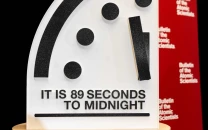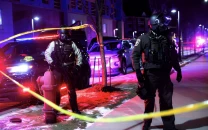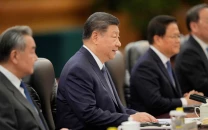Going to the polls
The apprehension in India is that violence will become part of the landscape as the country moves towards an election.

The writer is a consulting editor with The Statesman and writes widely for several newspapers in India
This is largely due to the fact that the investigating authorities went horribly wrong after the Mecca Masjid bombing in 2007, where it was assumed that the ‘Indian Mujahideen’, an amorphous organisation without a defined structure was responsible, along with its counterparts from Pakistan. However, sound investigation by the National Investigation Agency subsequently blamed former RSS members, including one Swami Aseemanand, for the attacks that had left at least 14 dead and many more injured. He was arrested along with others. This is one of the reasons why the investigating agencies are cautioning scribes against jumping to conclusions, more so, as evidence is still being collected and no one has claimed responsibility for the twin blasts.
The apprehension in India is that the violence will become part of the landscape as the country moves towards an election where the two main political parties, the Bharatiya Janata Party (BJP) and the Congress, are certainly not going to hit the road running. Both have been unable to improve their positions in the Hindi heartland with the states of Uttar Pradesh and Bihar, which remain crucial in determining the complexion of the government at the centre. Reports, so far, do not point towards a resurgence of either party, with the Congress battling to gain support for its scion, Rahul Gandhi, and the BJP working on its own inherent objections to arrive at a consensus for fielding Gujarat Chief Minister Narendra Modi as its unanimous prime ministerial candidate. In the process, both stand to gain from a certain polarisation of the voting communities, with one hoping for the minority base support and the other seeking a consolidation of the majority vote.
The regional parties are currently poised to better their fortunes in the states where they do exist and while in these elections no one is even trying for a third front alternative, there is some talk of a regional alliance post-election. The Left is weak and has given up all efforts to bring together a third alternative that will essentially emerge only if the Congress and the BJP are contained, and one or the other regional party secures enough seats for its leader to make a bid for the top job. Several regional leaders insist that this is a possibility but stop short of discussing it in detail, particularly when it comes to the ‘leader’ they and the others could support.
Ten states are going to the polls this year, with at least some being perceived as a ‘rehearsal’ for the general elections.
Elections will also be held in Jammu and Kashmir still reeling under the impact of the Afzal Guru execution, and while the National Conference and the Peoples Democratic Party will vie for whatever vote is cast in the Valley, the BJP and the Congress will battle it out in Jammu and other regions. Naxal-affected Chhatisgarh will also be going in for elections at the same time, with violence definitely on the agenda, more so as poverty and disaffection continues to traumatise the state, unabated.
All in all, a tension-ridden scenario, for not just India but all of South Asia where Pakistan, the Maldives, Afghanistan, Sri Lanka, Bangladesh, Nepal, and Bhutan are all readying for polls this year itself. All these nations, except for Bhutan perhaps, are showing signs of the election malaise in different forms and shades.
Published in The Express Tribune, February 23rd, 2013.



















COMMENTS
Comments are moderated and generally will be posted if they are on-topic and not abusive.
For more information, please see our Comments FAQ